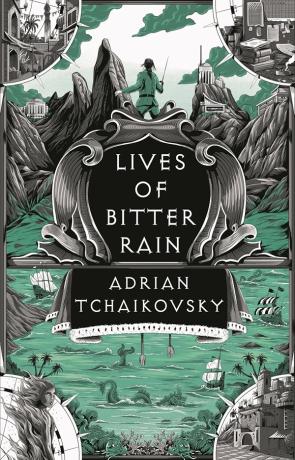When I Were a Lad a Guest Post by Echo Cycle Author Patrick Edwards
‘It’s the greatest thing that’s happened to us since Maggie took us into the Falklands.’ This is the voxpop that sticks in my mind: a Benidorm resident quizzed on Brexit, one of many in the days after the 2019 election and just before our EU membership expired quietly in a corner with barely a whimper. Never mind whether the Falklands was triumph or absurdity nor whether Thatcher was hero or villain. What surprised me more than anything was that he didn’t look old enough. He spoke like someone who’d been a part of it, not (by my snap estimation) a teenager at the time. When I turned off, I wondered if I was wrong: perhaps he was older than I thought, perhaps he had strong ties to the Forces. But perhaps was there just a chance that his worldview was constructed on uninterrogated nostalgia?
We’re all prone to it, regardless of background. Every one of us will look back on a time in our past and remember it as being good and pure and, crucially better than now. The whole Romantic period in art and literature harks back to an idealised past and how many of us have talked about the beer being cheaper, the kids more respectful of their elders? We don’t want the ever-evolving story of our selves to have awkward kinks, no ‘well, it was alright I guess’ – we’re shaped by movies and books and music (and our parents) to want to star in our own Stand By Me and our unconscious makes it so with such power that only painful introspection can see past it. And who’s a fan of that?
When I heard that sentence on the news it felt like an encapsulation of the Leave spirit: Make Britain Great Again. It edited out Poll Tax riots and the destruction of industry. It ignored national discontent, not just in the youth but even Middle England – Diana Gould was in her 60s when she took Thatcher to task over the Belgrano. People lost their lives in that war and families has to grieve. Every edge of it, every awkward nuance is omitted to follow more closely an idealised narrative.
This is the spirit that I imagine has run rampant in my book Echo Cycle: a triumphalist, exceptionalist fable stoked by the media in the face of evidence and pragmatism. It’s perhaps a bit mean of me to bring back food shortages, pollution and rampant poverty but it seemed a natural extrapolation: if, in this exaggerated world, people were so keen on going back to the halcyon days of the 50s than let them enjoy all of it, the rough and the smooth (there turns out to be very little smooth).
It’s easy to fall into, as I said. I find myself looking back at pre-2016 and thinking ‘Wow, we had it good.’ A proper historian would present a more balanced view: Obama, for all the hope he inspired, was still ordering drone strikes; we had to cope with a financial crash for the ages; those communities that brought political upheaval were genuinely marginalised. I have to hold myself to the same standard of introspection.
But music, though, that was just better when I was young. I’ll fight anyone who claims otherwise.
News Archives
- August 2024
- July 2023
- April 2023
- February 2023
- September 2022
- March 2022
- February 2022
- July 2021
- June 2021
- April 2021
- March 2021
- January 2021
- October 2020
- September 2020
- June 2020
- March 2020
- May 2019
- January 2019
- November 2018
- January 2016
- September 2015
- August 2015
- July 2015
- June 2015
- May 2015
- April 2015
- March 2015
- January 2015
- October 2014
- June 2014
- April 2014
- March 2014
- February 2014
- January 2014
- December 2013
- November 2013
- October 2013
- September 2013
- June 2013
- May 2013
- April 2013
- March 2013
- January 2013
- December 2012
- November 2012
- August 2012
- July 2012
- June 2012
- May 2012
- April 2012
- March 2012
- February 2012
- January 2012
- December 2011
- November 2011
- October 2011
- September 2011
- August 2011
- July 2011
- June 2011
- May 2011
- April 2011
- March 2011
- February 2011
- January 2011
- December 2010
- November 2010
- October 2010
- September 2010
- August 2010
- July 2010
- June 2010
- May 2010
- April 2010
- March 2010
- February 2010
- January 2010
- December 2009
- November 2009
- October 2009
- September 2009
- August 2009
- July 2009
- June 2009
- May 2009
- April 2009
- March 2009
- February 2009
- January 2009
- December 2008
- November 2008
- October 2008
- September 2008
